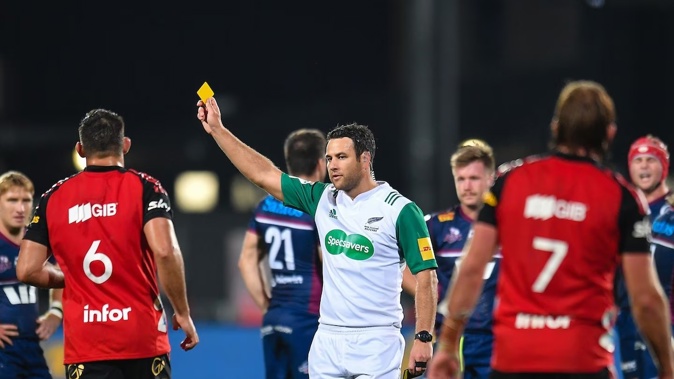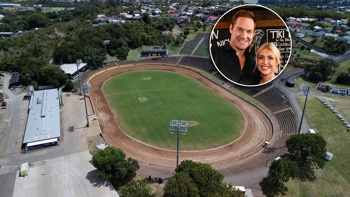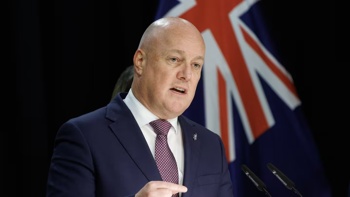
Super Rugby Pacific’s second season will adopt an in-game off-field review system to determine a yellow or red card threshold for all foul play incidents.
A series of time limits at scrums, lineouts and kicks for goal aimed at reducing stoppages will also be introduced.
With speeding up the game front of mind, Super Rugby Pacific will this year usher in something of a halfway house to the NRL’s off-field bunker review system.
Fans, players and coaches have been left infuriated in recent years by the increasing saturation of television match official influence and the dead time required to assess foul play.
Referees, in consultation with TMOs, often need several minutes to watch replays over and over at match venues to determine whether an incident warrants a yellow or red card.
This season Super Rugby Pacific referees will instead attempt to view two foul play replays at most. If that incident meets a yellow card threshold, the player will be sent from the field for 10 minutes.
While the match continues, the TMO then has eight minutes to review the incident and either uphold the yellow card or upgrade it to a 20-minute red card, in which case the player will not return to the field, but can be replaced.
Alongside the 20-minute send off, referees will now have the power to issue a full red card for deliberate foul play.
“This is an exciting innovation for us,” New Zealand referee Mike Fraser said. “It’s going to tick a lot of boxes around speeding the game up and reducing frustrations.”
Once the TMO determines whether a yellow card is upgraded or not officials will need to ensure that is clearly communicated to coaches, players and fans.
“That will be broadcast. It will come down to the sideline and like a normal substitution it would come through from there,” Fraser said. “We’re still working through this but we think the referee won’t stop play but they might on the run go and find the captain and tell them the yellow card has been upgraded.
“Certainly for fans at home and at the venue that will be communicated accordingly.”
/cloudfront-ap-southeast-2.images.arcpublishing.com/nzme/MKJ6UD5P3KPHQHZRS55OUL4GEE.jpg)
Scrums will now be timed to speed up play. Photo / Photosport
Unlike the NRL, which has long used a centralised bunker system to review all contentious decisions, four TMOs will instead rotate through Super Rugby matches and make calls on yellow or red card incidents.
“There’s a fair bit of education and upskilling work there to make sure we’re all aligned,” Fraser said.
NZ Rugby head of high performance Mike Anthony acknowledged rugby’s initial card review system could lead to inconsistency.
“We are investigating for the future do we go to a bunker system,” Anthony said. “There’s a lot of work involved around that. Like anything we want to make sure if we’re going to roll something out it’s going to be effective.
“For now we think the TMOs look at this stuff every game but we’re going to continue to investigate other better ways to get the same results. The consistency piece is going to be something new to this group but hopefully there will be less pressure than when it’s happening on the field.”
As they did previously, TMOs retain the ability to review two phases before a try and can still be called upon by the referee to check whether the ball is grounded in-goal.
Time wasting, particularly in the test scene, has become rife with teams faking injuries and significantly prolonging the set piece to slow the pace of the game.
With a view to reducing dead time and increasing ball in play, time restrictions will see Super Rugby referees enforce 90 seconds on conversions, 60 seconds for penalty kicks, 30 seconds for scrums and lineouts to be set, and five seconds for the ball to be used at rucks.
How these trials prepare the All Blacks, and whether they eventually transfer to the international game, remains to be seen.
“We want to play high tempo and break teams down with our quick play and our counter,” Anthony said. “The game with the stoppages, whether it be for injury or TMO, is challenging. Ideally we hope this sets our team up really well. We’ve got to get the balance right. That’s the tradeoff. I always think about what does it mean for our players when they transition to the international stage. We’re not too dissimilar now. We’ve seen World Rugby already introduce in the Six Nations better consistency around that.”
Take your Radio, Podcasts and Music with you









